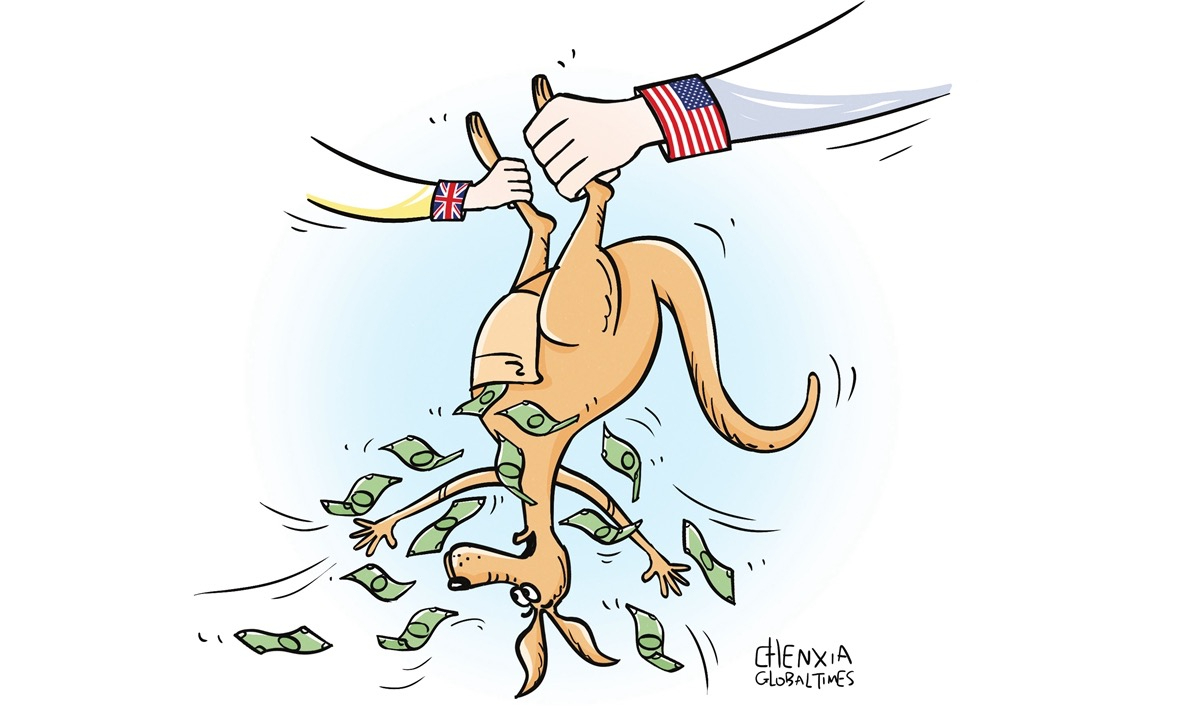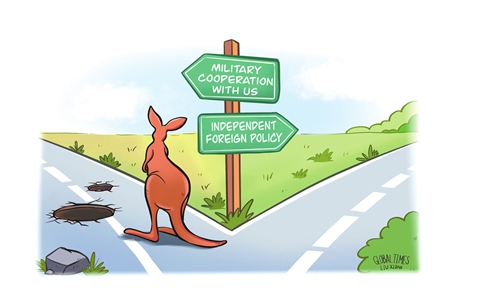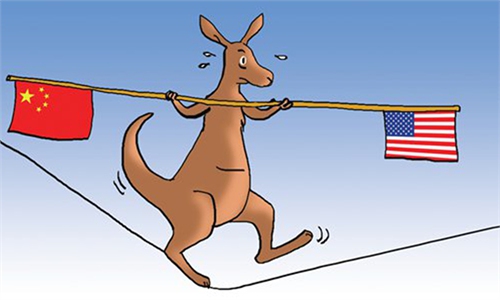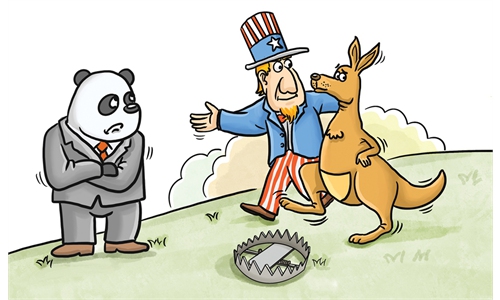
Illustration: Chen Xia/GT
In 1974, renowned Australian novelist Peter Carey published a short story titled American Dreams. In the story, a quiet and traditional Australian town is impacted by the influx of American culture and lifestyle. People in the town begin to pursue the so-called American dreams blindly, leading to spiritual desolation, economic dependency and the loss of their cultural identity. Faced with the relentless encroachment of American culture on Australia, Carey poses a question through this black humor story: Does Australia need an American dream?Fifty years later, it is ironic that Carey himself has relocated to New York, and in Australia, American culture and lifestyle have increasingly taken the dominant position. Recently, prominent Australian journalist Quentin Dempster wrote that especially in today's streaming era, Australian culture is experiencing a wave of "Americanization." Australia's Generation Z and Millennials are accustomed to using American social media platforms like Facebook and X to receive external information through their feeds. A vast array of American TV shows suitable for all age groups and of various styles and content are flooding the lives of Australians through American pay-TV channels and streaming platforms. According to statistics, Netflix Australia had 6.1 million Australian subscribers, with an estimated revenue of A$1.06 billion in 2022. Another streaming service, Stan, with 2.6 million Australian subscribers, had an estimated revenue of A$427 million. Disney+ had 3.1 million Australian subscribers, generating A$810 million in annual revenue. The pronunciation, vocabulary and slang of American English have been increasingly accepted by Australians, gradually altering their language and behavior.
In fact, the Australian government has attempted to increase the proportion of domestic content in television. However, under the influence of the US-Australian Free Trade Agreement, which took effect in 2005, media channels controlled by American capital have leveraged relevant clauses to block Australia's legislation on local content quotas in the domestic market. As a result, even Australian television channels broadcast a significant amount of American shows. In response to this, Matthew Deaner, CEO of the Australian Screen Producers' Association, pointed out that Australia's screen industry should grow its own storytelling capabilities, but it is now playing the role of a "service provider for Hollywood productions."
In the face of the gradual loss of Australia's cultural sovereignty, Dempster urgently warned that as US ways of seeing the world have come to dominate Australia, "Australians are rendered effectively voiceless in their own country and culture." Since World War II, American values and perceptions, carried by American popular culture, have infiltrated the social fabric of Australia, subtly transforming the thinking of more and more Australians.
Many Australians have realized that the loss of cultural sovereignty leads to the passive acceptance and even active endorsement of American hegemony, blurring and confusing the boundary between the two. These Australians believe that on certain major issues, Australia's national interests have been quietly replaced by American strategic objectives.
The recently announced AUKUS 2.0 agreement is a typical example. This nuclear-powered submarine cooperation agreement is both unfair and unfavorable to Australia. According to the agreement, Australia must manage, store, or dispose of radioactive waste from an AUKUS submarine. In the event of any loss or injury during this process, Australia must indemnify the US and the UK. Furthermore, the agreement allows the US and the UK to pull out of the submarine deal based on their submarine manufacturing situations by providing a year's notice to Australia, with no binding power from Australia over them. Australia is spending A$368 billion to purchase nuclear-powered submarines, tying itself to the US war machine while placing itself under severe security threats. No wonder former Australian prime minister Paul Keating recently stated publicly that AUKUS is essentially the US' military control of Australia, and he has criticized AUKUS as "the worst deal in all history."
Beginning with cultural "Americanization," Australia's diplomatic and security decisions are increasingly influenced and even controlled by US strategy. This is precisely what Australia's insightful individuals are deeply concerned about. As David Mosler, an American-born scholar, once concluded in his book, Australia may become the "51st state" of the US.
The author is the director of the Australian Studies Center at East China Normal University. opinion@globaltimes.com.cn



